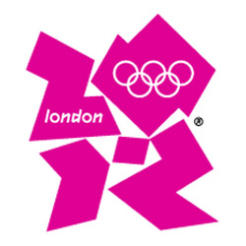After Great Britain’s most successful Olympic Games in living memory, what will happen to lottery funding as the dust from last night’s firework display settles? Celina Ribeiro isn’t sure it’ll end up back with charities.
Phwoar. How was that? Forgetting (as I’m trying desperately to do) last night’s One Direction lorry and surprise (!) appearance of supermodels walking in gold clothes, the Olympic Games 2012 were not bad, eh?
The community spirit, the drama, the inspirational performances, the transnational friendship. The sense of pride and personal happiness as British athlete after British athlete gabbed in front of BBC presenters about how dreams can come true if you really want it, how the home crowd really does make a difference and – of course – how important lottery funding has been to their success. Time and time again, athletes, coaches and all those associated with Olympic success thanked lottery funding. Praised lottery funding. Cited lottery funding as invaluable.
Aye, there’s the rub.
Before you can say ‘Don’t forget about the Paralympic Games, they’re going to be fantastic, how cool is wheelchair rugby?’, yesterday Prime Minister David Cameron confirmed that the funding of elite sport will continue on at its present, considerable, levels beyond the original 2014 promise.
As an Australian, (and yes, I have heard that one before, thanks) I know only too well the power of sports funding, given that my home country appeared to fall into a state of near national mourning over the performance of its athletes, and all the while failure’s finger of blame pointed firmly at funding for sports.
Which brings us to the question of the ‘return’ of lottery money to the UK charity sector - that is, the return of the ratio of how much lottery revenue goes to charities as opposed to sporting 'good causes' to the state it was before London won the right to host the Olympics. The Directory of Social Change has been pushing for this for some time, and even before the Olympics my esteemed colleague Niki May Young predicted they may not quite have David Cameron’s ear at this point in time. But what has changed is that perhaps they don’t have anyone’s ear. Can the charity sector be heard above the roar of ‘Let’s go GB, let’s go!’?
So engorged is Britain on the fat of victory, after so very (very) long at the bottom of the medal table, that it might have just got used to winning. In which case, the public outcry should Sir Christopher Hoy not have the world’s fastest track bike or Rebecca Adlington not receive the appropriate sports psychologist support following these games could well be greater than the outcry at a community programme for youth offenders having to reduce the scope of its own good work.
Lottery funding is not a right
Charities are going to have to do a lot to convince a country in love with winning that this lottery money is ‘theirs’. Lottery funding is not the unalienable birthright of charities. It is money derived from members of the public having a punt that they might get mega-rich. Charities do not own it, did not work for it and, given the sports funding lovefest presently underway, may have to get used to surviving with the levels it has enjoyed for the past few years.
It’s a shame for those organisations working on excellent projects which have no chance of getting even a sliver of emotive, nationalistic media coverage of their own inspirational achievements to demonstrate how important lottery funding has been to them. I could well be wrong on this prediction – and would hope to be - as although I cheered on Mo Farah (because there were no Australians behind him relegated to silver medals), rationally I know I would rather some of the money that goes towards his underwater treadmills end up instead with an organisation working to improve the quality of life for elderly people.
Charities have engaged with the Olympics, and I might expect a few working in the sector even enjoyed it. However the Olympics are a competitor, and a formidable one at that. Charities will have to play a game of tactics, judgement and endurance if they want to claw back more of the lottery windfall that they have had in the past.









